News & Media
Stimulating discussion on kick-starting Zimbabwe’s healing and recovery
Dr Naledi Pandor, Minister of the Department of International Relations and Cooperation (DIRCO), in partnership with the Unisa and the Institute for Global Dialogue (IGD) held a public dialogue on the future of Zimbabwe, under the theme “The best path to a prosperous Zimbabwe.”
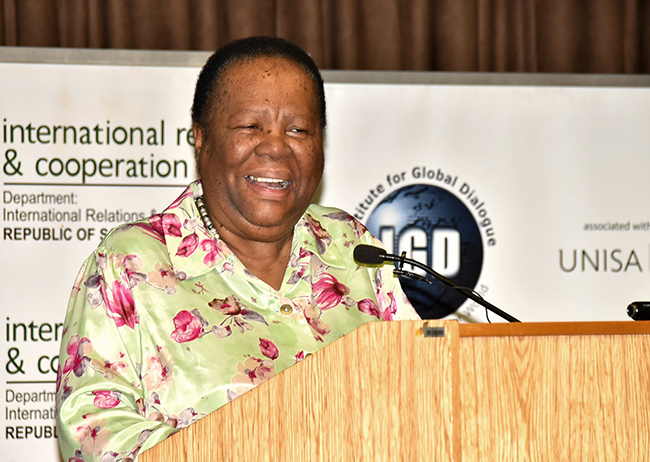
Dr Naledi Pandor, Minister of the Department of International Relations and Cooperation (DIRCO)
The purpose of the symposium was to reflect on the call by the Southern African Development Community (SADC) to lift the sanctions imposed on the Republic of Zimbabwe, and to stimulate discussion on what can be done to kick-start the growth of the Zimbabwean economy, following the economic meltdown.
In his welcoming address, Unisa’s Vice-Chancellor and Principal, Professor Mandla Makhanya, said that the build-up towards the burial of the former leader of Zimbabwe, the late President Robert Mugabe, demonstrated how difficult it is to rebuild a country that carries so much shattered hope; not only for its own people, but for the entire continent: “While the focus on the side of the mainstream commentariat has been on the relations that Zimbabwe has rebuilt and must rebuild with the West, our focus should be broader than that.”
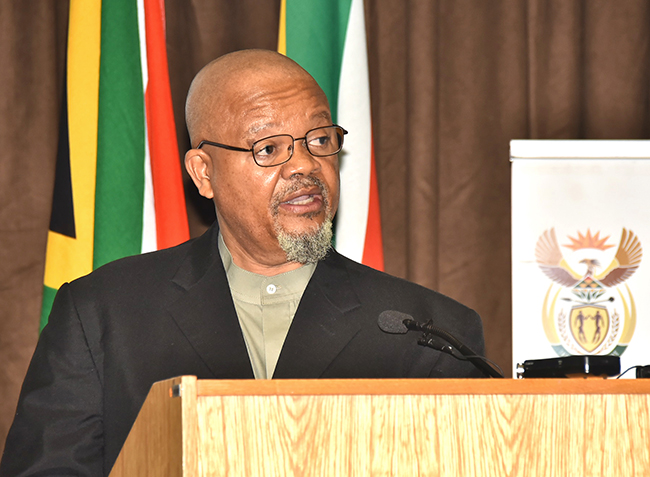
Prof. Mandla Makhanya, Unisa's Vice-Chancellor and Principal
Makhanya added that there is a need for a pan-African approach that is informed by the needs of the people of Zimbabwe, regional integration, and the wider interests of the continent. Such a noble goal as rebuilding Zimbabwe must, of necessity, be anchored in uniting the people and rallying them around one common goal. This, because any talk about rebuilding Zimbabwe is often fraught with contestation, with hardened attitudes on both sides of the debate.
He further advised that the Zimbabwean government must, during all stages of the process, take the nation into its confidence and be open about the opportunities and challenges accompanying attempts to heal the country: “The disunity between ZANU and ZAPU for a long period of time, and at times along ethnic lines until they merged to form ZANU-PF, remains a blight in the history of the great country of Zimbabwe. There can be no doubt that part of the healing that must take place in Zimbabwe will be to consolidate the merger between the two parties, with the resolve that another episode of the Matabeleland North killings does not recur.”
On a similar note, in her address Pandor stated that as a department they have some appreciation for the nature of the challenges, and the various economic and social imperatives facing Zimbabwe. “By all accounts there are serious and seemingly intractable political factors that might need attention if solutions are to be effective or implementable,” she explained.
Pandor also said the fact that political formations in Zimbabwe were continually at loggerheads and showed deep antipathy towards each other, made joint decision making and planning extremely difficult: “It seems clear that even as we support the call for an end to economic sanctions, the political dynamics are inextricably linked to the economic and thus should be confronted simultaneously.”
She also stressed that solutions can only be led from Zimbabwe itself, and would certainly ease the development of SADC contributions in response to the emergent compact.
She further pointed to the fact that Zimbabwe has experienced a significant loss of skills in the past decade, which “has harmed the possibility of efficient management of key economic sectors and institutions.”
Pandor concluded by adding: Finding solutions to the loss of skills will be an important part of the practical actions we should consider. We may have to devise innovative forms of institutional collaboration that would help sustain and perhaps restore the efficacy of critical institutions. SADC may need to go beyond the resolution we adopted and engage those who have imposed sanctions, to agree on lifting sanctions to support the recovery of sectors such as health, agriculture and education.
* By Edgar Rathelele, Senior Media Officer, Department of Institutional Advancement
Publish date: 2019-11-20 00:00:00.0

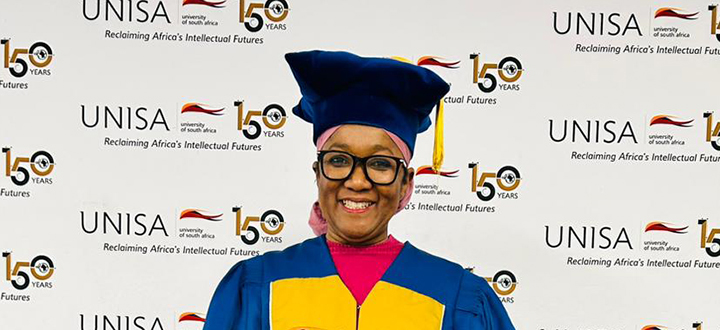 Unisa community engagement initiative targets school underperformance
Unisa community engagement initiative targets school underperformance
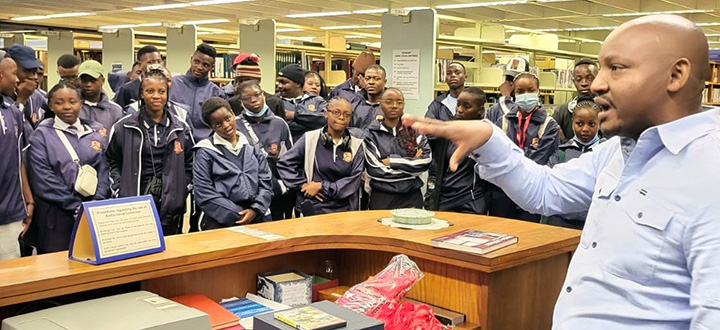 Library tour introduces learners to the wonderful world of Unisa
Library tour introduces learners to the wonderful world of Unisa
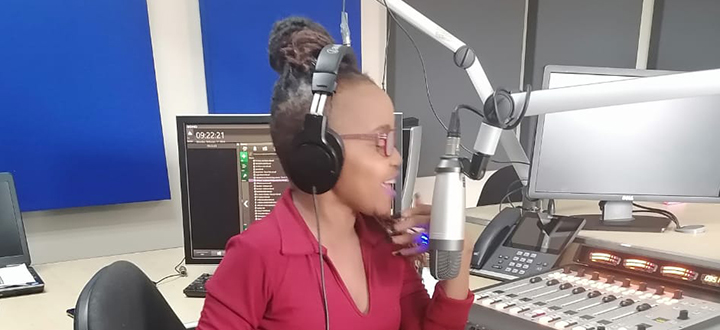 Unisa Radio volunteer wins prestigious community journalism award
Unisa Radio volunteer wins prestigious community journalism award
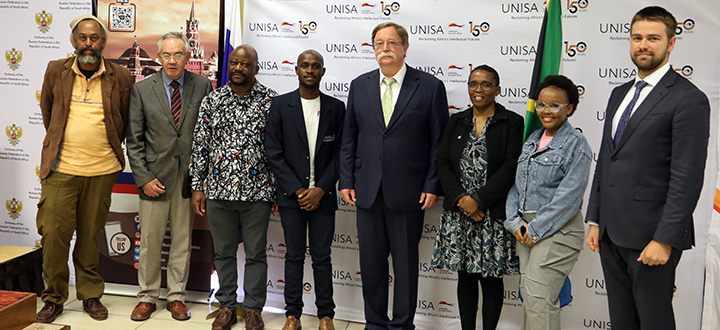 Unisa's student leadership engage with Russian ambassador
Unisa's student leadership engage with Russian ambassador
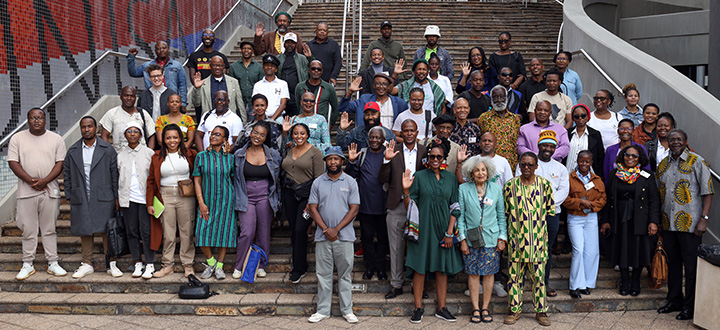 Re-igniting and re-imagining Pan Africanism, Afrocentricity and Afrofuturism in the 21st century
Re-igniting and re-imagining Pan Africanism, Afrocentricity and Afrofuturism in the 21st century